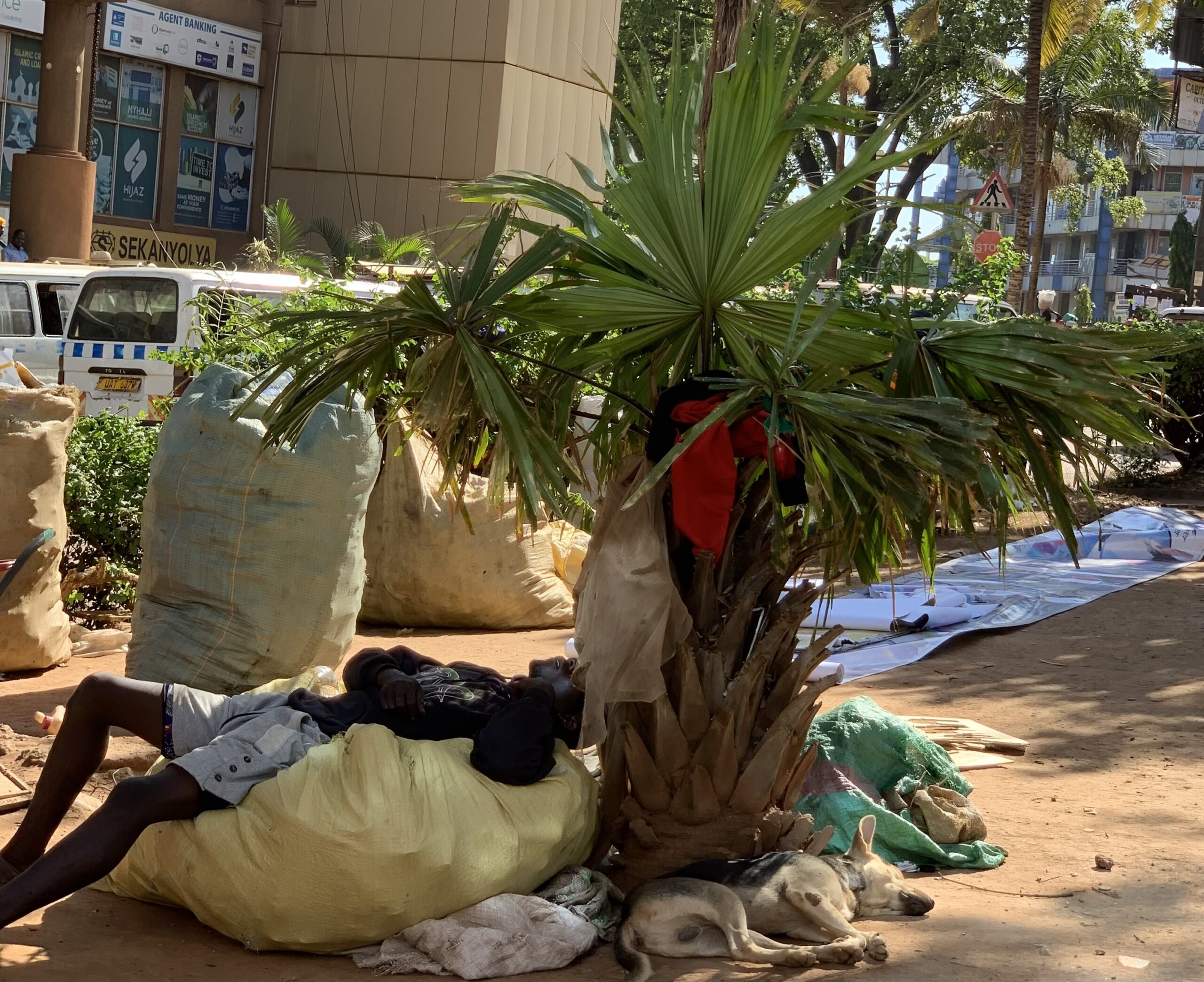By Hedwig Arinaitwe
Walking through arcades in Kampala city, you catch glimpses of various women in small box like shops, holding plastic hand fans close to their faces. On the streets the umbrellas have made a grand come back. Across the taxi park are young men shouting ‘’ chiffon tops nkumi bili bili’’ loosely translated as chiffon tops at two thousand shillings only.
Nakawombe Rose a roadside vendor, who sells fresh fruits, seems not to find fault with the scorching sun.
‘’ I became numb to the sun, I have worked under the sun for five years,’’ Rose remarks
Although Rose numbed the feeling of sun on her skin, the current heat wave is not something she can numb.
‘’ The heat these days is not like before, it can be unbearable because as a woman you end up smelling foul and chasing away customers. And that’s not the only problem, there are no free shower services in this town,’’ she said
According to the IGAD Climate Prediction and Applications centre, there is likely to be a heat wave in Kampala from March to May 2024, signalling heightened temperatures throught the region.
Speaking at the 7th Uganda Water week, Honourable Sam Cheptoris the Minister of Water and Environment said that, Climate change remains a major challenge due to the adverse effects caused by extreme weather patterns like floods , landslides and drought that are affecting different parts of the country.
‘’The poor management of natural resources including wetlands, forests water and environment have contributed to climate change with serious health implications on health of the population and agricultural productivity,’’
He revealed that the government has introduced a framework to address mitigation and adaptation efforts, and is finalising the vulnerability index to facilitate the monitoring of the effects of climate change.
Namale Sarah a business woman, who spends the day at her electronics shop in Kampala city, says that she has experienced a 25% decline in sales since the beginning of March.
She attributes the decline to the current heat wave that has hit the city.
‘’The decline is very evident, in a day I would serve over seventy clients but now even making twenty is a miracle, customers fear to walk under the scorching sun which entirely affects business,’’ she noted
Sarah has a plastic hand fan which she uses to keep herself cool amidst the heat wave.
‘’I bought this fan out of dire need, I couldn’t take it anymore. It cost me Ugx 36,000 (USD10) which is quite a lot, but the building is extremely hot especially in the afternoon and unbearable for us who wear hijabs all day,’’ Sarah reveals.
High Temperatures and Mental Health
According to Asiingwire Sandra, a professional Psychologist at New Dawn Counselling and Psychotherapy, vulnerable groups of people are most affected by the effects of the heat waves.
‘’ Heat or high temps can lead to an increase in stress and anxiety especially among the very young, very old, pregnant women and those with pre – existing mental conditions,’’ she said
However the effects of heat waves on mental health are numerous and here is how one can be affected.
Prolonged exposure comes with a number of physiological reactions such as increased heart rate, sweating and dehydration leading to physical discomfort and psychological discomfort.
High temps are associated with sleep disruptions and physical discomfort. This is fertile ground for irritability, temper flares, depression, aggression and road rages.
High temps may lead to poor focus and decreased productivity and this is due to physical discomfort (feeling hot, sweating)
High temps of higher than 40 can lead to heat exhaustion, heat stroke causing damage to the brain and heart.
To keep safe especially during such times, Stay dehydrated, keep cool, Practice mindfulness, rest whenever you can, avoid direct exposure to the sun and conclusively seek for help if you recognize feelings of irritability and depression.
Green spaces as a solution
Joan Asiimwe, a local government Urban Planner says that physical planning standards in Uganda have been ignored contributing to issues like extreme heat waves.
‘’According to Uganda’s physical standard guidelines, developers are require develop 70% and leave the 30% for greening on a 50ft by 100. But most people pave their residencies and don’t prioritise green spaces,’’ she advised
Asiimwe emphasises that a standard planned community should not suffer effects of the heat wave, because such a place has a great percentage of green that makes it resilient to climate change effects like heat waves.
